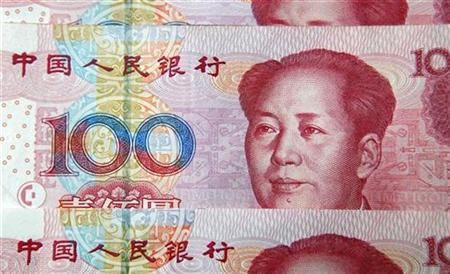China's Manufacturing Activity Expanded To 14-Month High In December: HSBC PMI

China's manufacturing activity expanded to a 14-month high in December, according to the HSBC Purchasing Managers’ Index released Friday.
The preliminary flash reading of the PMI, a measure of nationwide manufacturing activity, rose to 50.9 in December compared with 50.5 in November.
“As December flash manufacturing PMI picked up further to a 14-month high, it confirmed that China's ongoing growth recovery is gaining momentum, mainly driven by domestic demand conditions. However, the drop of new export orders and the downside surprise of November exports growth suggest the persisting external headwinds. This calls for Beijing to keep an accommodative policy stance to counterbalance the external weakness, provided inflation stays benign,” Hongbin Qu, chief China economist and co-head of Asian economic research at HSBC, said in a note.
Significantly, the index remained in the expansion zone, a reading above 50. The expansion of the manufacturing activity should allay fears of a sharp retardation of the Chinese economy.
This report comes after it was reported Sunday that China’s industrial production rose in November over the previous month, indicating an upswing in the country's manufacturing output. The data released by the National Bureau of Statistics of China showed that the country’s industrial production, which measures the change in the total inflation-adjusted value of output produced by manufacturers, mines and utilities, rose 10.1 percent in November, up from 9.6 percent in October and also above analysts’ average forecast of 9.8 percent.
Meanwhile, it was reported earlier this month that China’s trade surplus dropped in November from the previous month. According to data released earlier this month by the National Bureau of Statistics of China, the surplus shrank to $19.6 billion in November, against $32 billion in October and below analysts’ forecast of $25.7 billion. China’s exports rose 2.9 percent in November, down from an 11.6 percent increase in October and below the analysts’ expectation of a 9 percent increase.
There have been fears of a hard landing after data by the National Bureau of Statistics of China showed that the country’s gross domestic product growth slowed to 7.4 percent in the third quarter, down from 7.6 percent in the second quarter, due to soft global demand and reduced real estate investment in the world's second-largest economy. Market participants hope Beijing policymakers will soon announce monetary easing measures to keep industrial activity buoyant.
© Copyright IBTimes 2024. All rights reserved.




















